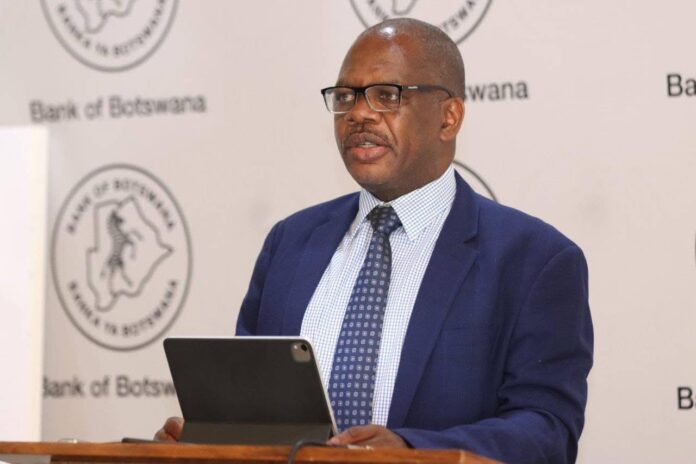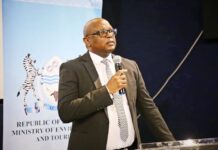The Bank of Botswana (BoB) has implemented a policy adjustment this year aimed at easing trade. Contrary to media reports suggesting a recent devaluation of the Pula, BoB has clarified that the adjustment—introduced in January 2025—is not a devaluation, but rather an intervention designed to refine trade margins, enhance market flexibility, and foster market development.
Speaking at the official opening of a two-day media training workshop held on the outskirts of Lobatse this week, Deputy Governor Lesego Moseki emphasised the crucial role of the media in advancing the public good and cautioned against the dangers of inaccurate reporting.
“Misinterpretations of central bank communications may lead to public misinformation and pose reputational risks for the institution,” Moseki said. “Media communication thrives on facts—that is how the public perceives and processes it. Therefore, financial literacy among media professionals is not merely advantageous; it is essential and paramount.”
He also highlighted the ongoing global economic uncertainty, particularly in the context of the so-called “Trump tariffs,” which continue to pose challenges to international trade and monetary policy.
“Central banks around the world are trying to gauge the potential impacts of these tariffs and the resulting reciprocal measures on global markets and economies,” Moseki noted. “Under such circumstances, central bank communication becomes extremely important. The role played by the media in this regard can not be understated.”
To support accurate reporting and deeper understanding, the bank assembled a team of experts to lead discussions on various central banking functions. The sessions covered key documents such as the Monetary Policy Report, the Banking Supervision Annual Report, and publications related to currency and money markets. The objective of the training was to enhance the media’s ability to interpret and convey these complex financial and economic issues with clarity and confidence.



